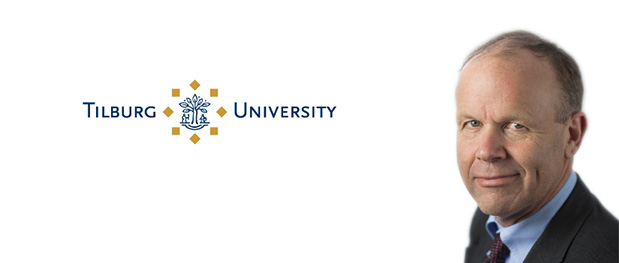According to the Polderparade you have been named the most influential economist of Belgium and the Netherlands. In 2003 you have won the Spinoza Prize for Economics. Can you tell us more about your study, career and the road to this success?
I started out with the bachelor in Econometrics. I thought it was a combination of economics and mathematics, but it turned out to be more math than I had hoped. I still completed it though. I ended up with heaps of knowledge in mathematics and statistics, from which I profited a lot. Eventually I am happy for my perseverance.
It is visible in my career that I’ve been doing different things throughout the years, I first started with the economy of the government, which I also wrote my thesis on. At the IMF, I started out as my first job also working on the economy of the government. After 10 years of living and working in The United States, I moved back to The Netherlands, finding a new area to focus on: the environment. Since 2003 I have been working on pensions and now I’m going to start with a new challenge: economics education in high schools. I will mainly focus on the transfer of knowledge to the younger generation. I have so far been involved with older people and now it is time to work with the young ones.
Every 10 years I start something new. I like variety in different subjects but also in various working environments. I find the scientific environment very interesting, but working in it for a very long time can become boring, leaving me with no choice but to keep interfering with policy makers.
You were named the most influential economist of the Netherlands is among others due to your defense of the flat tax. What exactly does that mean and what are the benefits of the flat tax?
The advantages are mainly on the grounds of simplicity. The tax system is not transparent and very difficult for people to understand. With the introduction of the flat tax everyone pays the same marginal rate based on a given income. This means that for each extra euro earned, about half of it would be going to the government. If you compare this with the current tax system, we’re not far from down there. If we were to switch to a tax system that is simpler, such as the flat tax, where everyone would pay the same tax rate, people would have a better understanding of the tax system. Now they have the idea that a large part of the extra income they earn goes to the government. That makes working an extra hour very unattractive. The flat tax is therefore, in the first place, very beneficial in terms of simplicity. Because the tax system is less complicated, it is likely to lead to better incentives for people to earn more income.
Opponents of the flat tax see this as a gift for the rich. For example, they say that the flat tax is not progressive, that it contributes to income inequality and that it will shrink the labor supply. How do you see this?
There are different types of flat tax. You have to deal with a very high or a very low rate. That the flat tax would be progressive is really a misconception, because a flat tax refers to the so-called marginal rate, which is the same for everyone. The average rate, for example, the percentage of your annual income you have to pay to the government, is something entirely different. It can still increase with income, even though the marginal rate remains constant. You can also have a progressive system in which the rich pay more on average that the poor, if you do have a fixed marginal rate. So a flat tax does not need to be redistributive. The people who say that the flat tax is not progressive confuse a flat marginal rate with a flat average rate. You can have a system where poor people receive a certain amount, and where the extra income that people earn is taxed at a flat rate. It would still mean that poor people pay on average less tax than the rich.
A big future problem is the aging of the population. What do you think is the best way to deal with this phenomenon, so that both our generations will benefit from it?
The main solution is that aging is a good thing, we continue to live longer. There is a problem in the fact that we continue to deal with the same retirement age. The solution is very simple; living longer also means working longer. This is done by linking the state pension age to life expectancy. There must be a greater investment in education to make people work longer. It is also needed to keep investing in people, In order to remain productive over a longer period of time. It is important that the older generation is able to work longer, otherwise the younger generation will pay for the pensions of the elderly. You should keep in mind, however, that you will have to work longer, so it is very important that you invest in yourself enough and can get a job you really enjoy. Human skills are becoming increasingly important because there are more people, so it is very important to invest well in them.
When do you think that this trend will disappear?
The aging does not go away, people living longer is still an ongoing trend. The proportion of the population over 65 years old, continues to rise. Thus the state pension age will also continue to rise. It’s called aging but you could also call it greening because you stay fit for a longer time.
What are the future challenges for our society, in your opinion?
Ageing is also an example of a future challenge. It is necessary for things to be changed in order to ensure that people are able to work longer.
Another challenge is dealing with differences. There are more and more differences appearing in society, the society is becoming increasingly diverse. The challenge here is to continue to cooperate with each other, as there is unity in diversity. Difference should be seen as something productive, I just think it offers a lot of opportunities. Someone else has something you do not. But it is also more difficult to work with each other because of the differences. This is a major challenge for the whole world. The challenge is to see a difference as an opportunity.
Do you have any tips for students of Tilburg University?
Do not be afraid to fail or to be different, but see it as an opportunity. You should try many things in life, you will end up learning from it. So do not be afraid to try new things or to be different from other people.

















